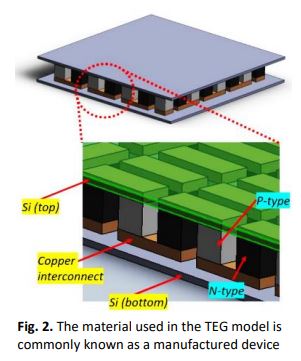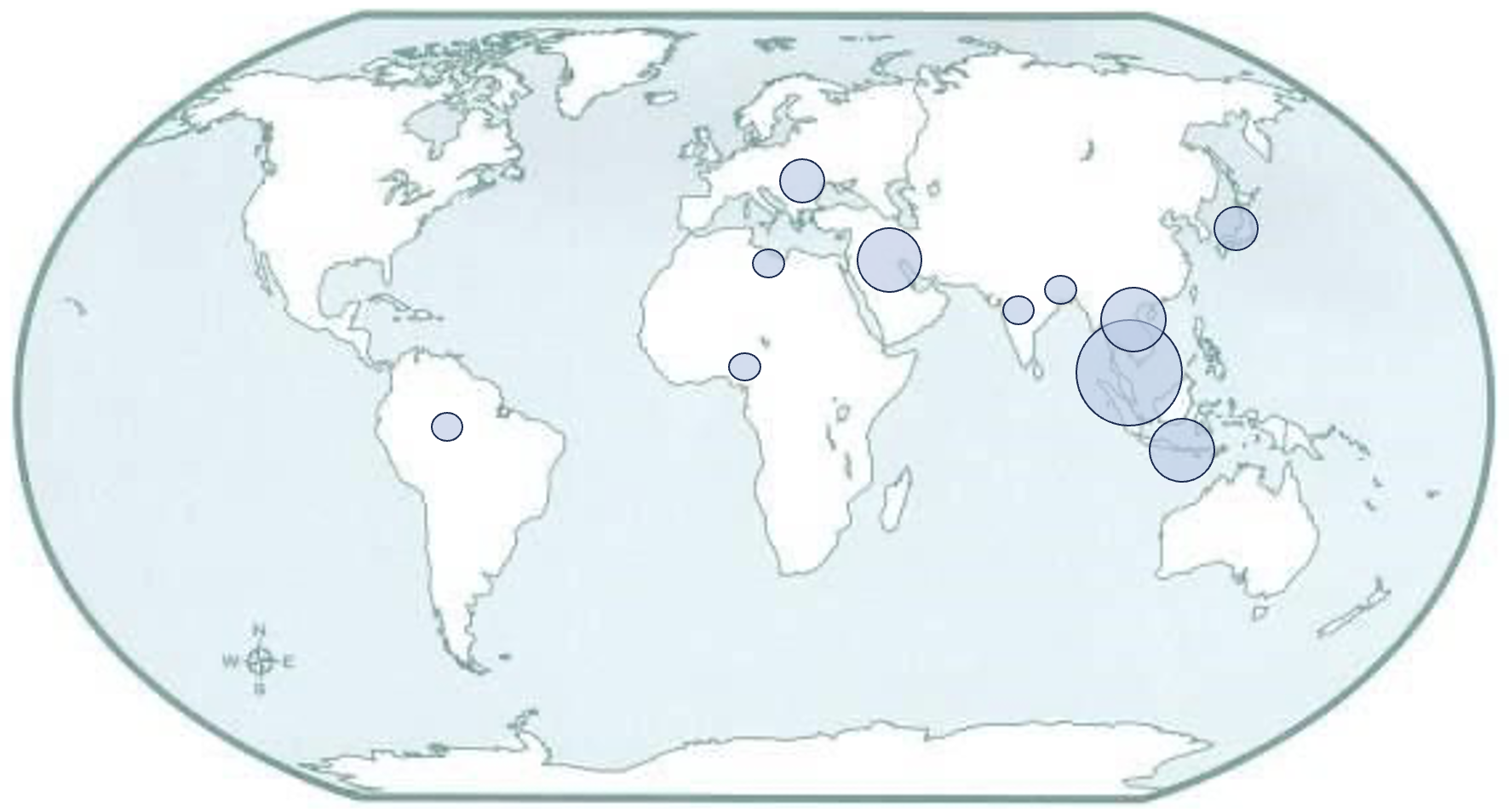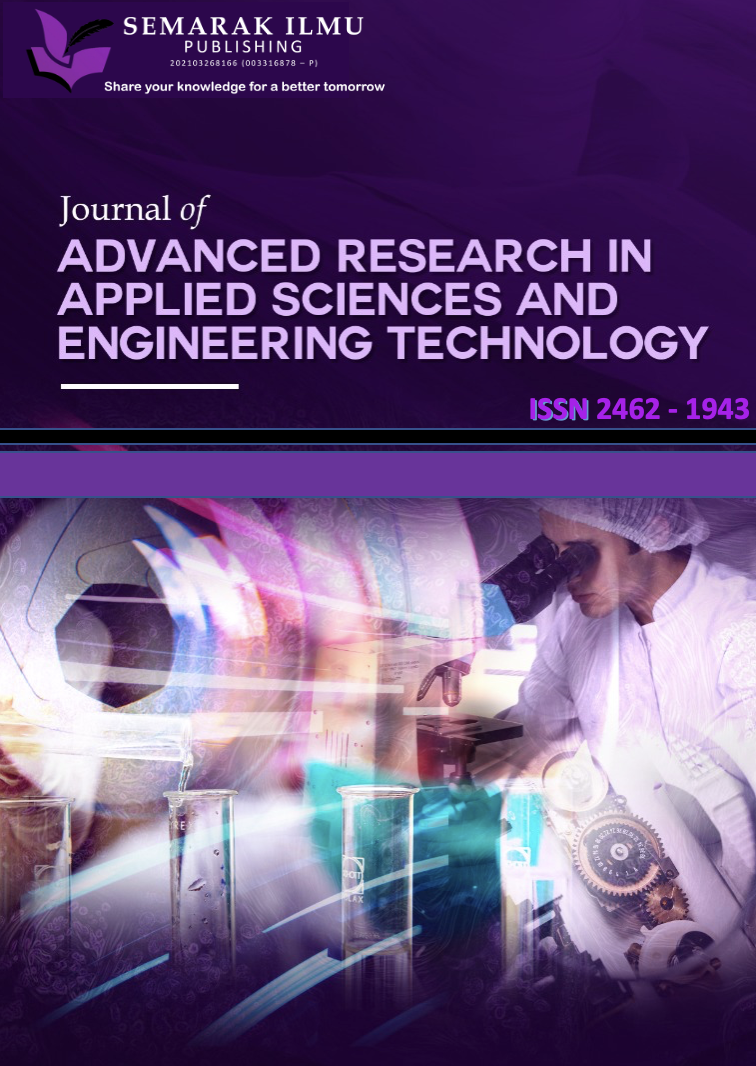Enhanced Thermoelectric Generator Power Output Based on Electrodeposited Bi2Te3 Nanocomposites with Pt NPs-CNTs Through Multiphysics Simulation
DOI:
https://doi.org/10.37934/armne.25.113Keywords:
Thermoelectric generator (TEG), CFD, nanocomposite, TEG power densityAbstract
Thermoelectric generators (TEG) possess the potential to transform unused heat into electrical energy, making thermoelectricity a viable alternative for addressing the energy issue. This study provides insight into the enhanced power density of a TEG device when embedded with bismuth telluride (Bi2Te3) nanocomposite. The TEG power density has been analysed under the fluid flow simulation condition by utilizing several Bi2Te3 nanocomposite materials with Pt NPs-CNTs inclusion. The impact of static and steady air flow conditions has been studied using a detailed computational fluid dynamics (CFD) parameter, with flow velocities of 0.01 m/s and 1 m/s. As a main part of the work, the power density of nanocomposites embedded as N-type legs was compared to that of pure material. The Bi2Te3 with hybrid nanocomposite produces the highest power density, precisely combining Bi2Te3 with platinum nanoparticles (Pt Nps) and single-wall carbon nanotube (SWCNT) materials (Bi2Te3/Pt-SWCNTs). At velocity of 1 m/s, the power density was calculated to be 156.85μW/cm2, which increased to 158.86 μW/cm2 at a fluid velocity of 1 m/s, marking an 88% increment compared to the TEG model using pristine Bi2Te3 and higher than that of the previous work about 4 times of increment.
Downloads

























